RV owner’s biggest concern is what is the most effective and easy way to clean their on-the-wheel homes without creating a nuisance. Most of the time, they seek professional assistance to do RV washing jobs, which is a fairly smart choice. On the other hand, some RV owners are quite over-excited, and they choose to do it on their own. However, it can cause severe destruction to the RV, and ultimately, it ends up with huge repair costs.
So, in this article, we have tried to explain an element of this whole RV washing process, and that is pressure washers for RV. Here, we will share some essential information about the PSI limit for RV pressure washing to avoid damage to your precious motor homes. Let’s move further and understand the same.
How to Pressure Wash your RV: A Complete Guide
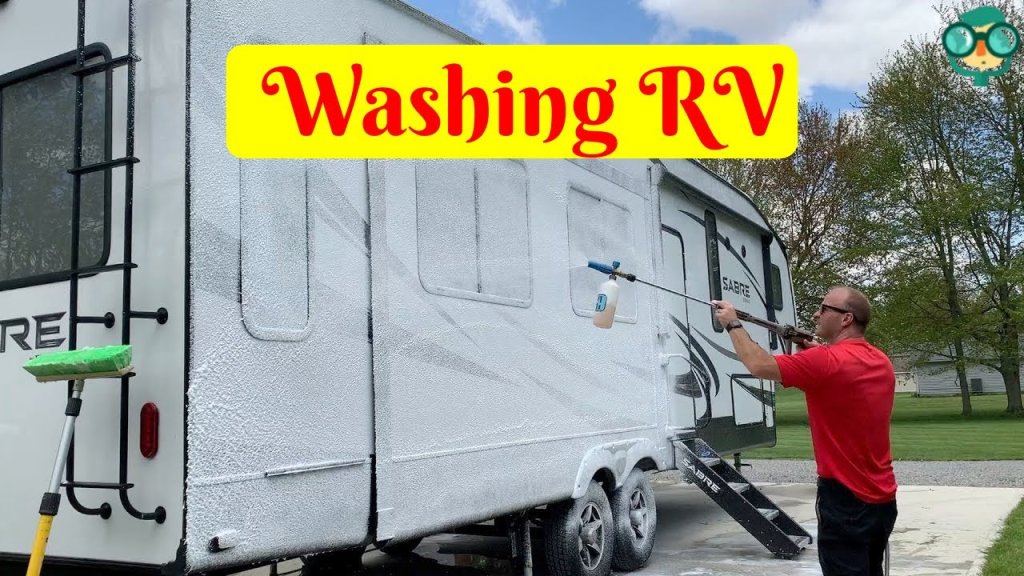
Some enthusiastic RV owners think that cleaning an RV is an easy job with the help of some cleaners that are marketed by various brands and just a high-speed pressure washer, and they feel it’s done. However, it is a very wrong perception if any RV owner believes that this is the best way to shine up their dirty RVs.
Let us clear here that every part of the whole RV has been crafted using different types of material, and each material has its own cleaning or maintenance guidelines—for instance, different types of roofing materials, RV sides, tires, vents, etc.
Hence, it is not an appropriate way to wash out RV exterior parts using the same procedure. To comprehend the topic, first, we need to take a look at the primary aspect, which is washing RV with accurate water pressure.
How Much Water Pressure is Required to Wash the RV?
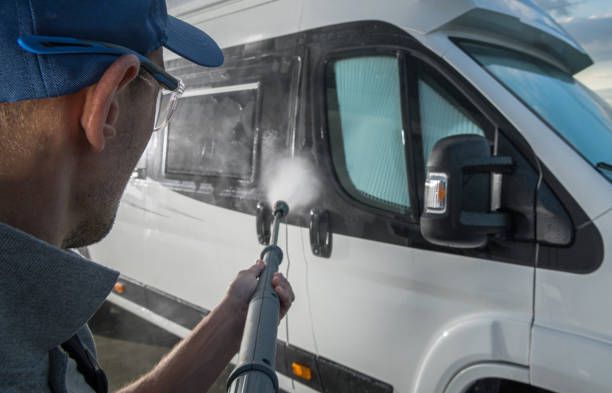
In recent years, there have been many high-speed pressure washers you will get to see in the market specially made for RV washing. Even though they have their manuals of usage, they cannot get used to any material. To be more precise, these washers come with different ranges of pound-force per square inch in short PSI.
In simple words, PSI is an indicator to show how much force water has while spraying it on the surface. When these pressure washers are specifically used for RV cleaning purposes, then it is necessary to control the PSI at a certain level.
For RV pressure washing, professionals recommended 1000 PSI to 1300 PSI and appropriate nozzle size. As we discussed earlier, RVs are structured using various kinds of materials, so they need different types of water pressure while cleaning them
1. RV Roofs
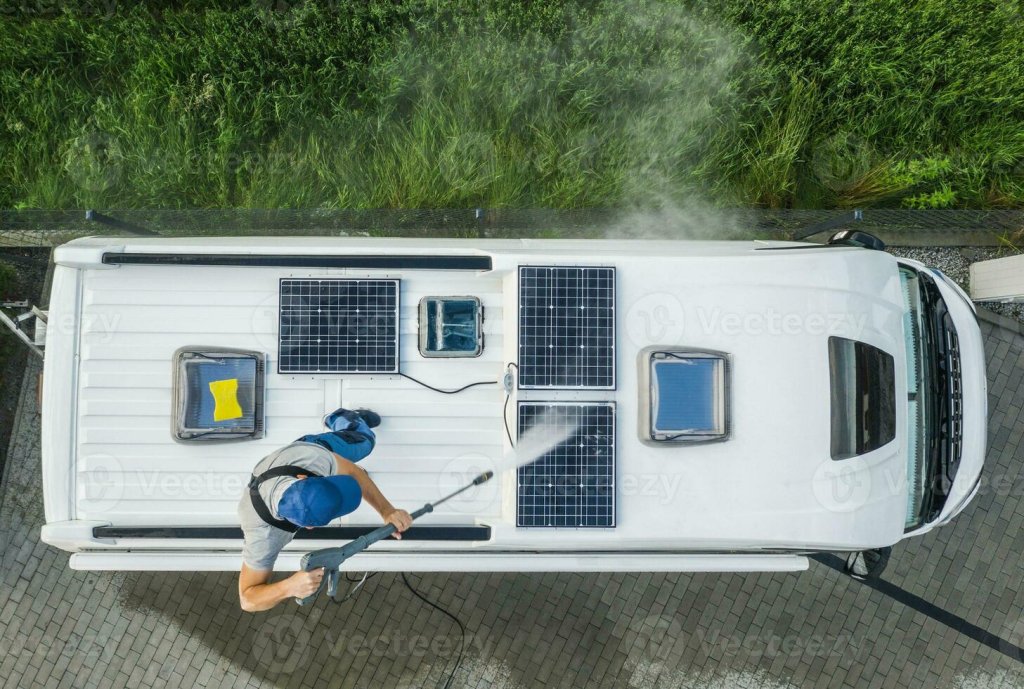
Generally, the RV cleaning process starts from roofs, and there are 4 types of membranes applied for RV roofing i.e. EPDM, TPO, Fiberglass, and PVC. However, these kinds of roofing can not bear higher PSI pressure washing. It can damage the membrane i.e. the roof will get scratches and holes, or the higher amount of water pressure can even tear it.
Hence, RV roofs demand a gentle soft wash process with a mild pressure wash, placing the nozzle not too close to the roof. In case there is aluminum roofing, it can proceed with a normal side wash.
2. RV Sides
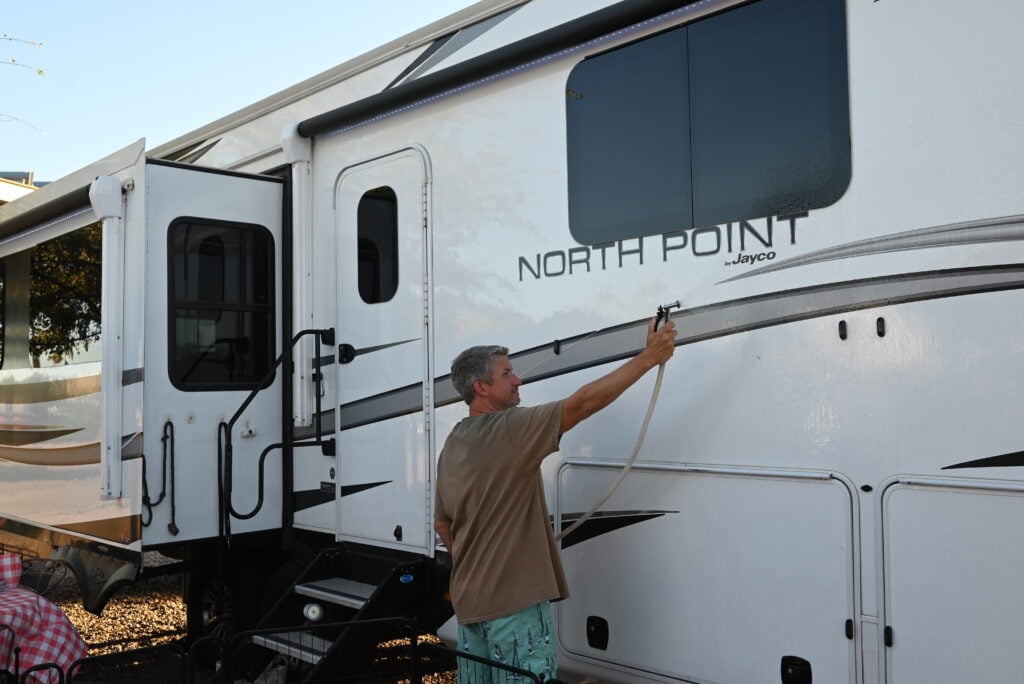
Lower exterior parts of an RV, such as metal sides, can be washed by using higher psi in some cases. However, it first needs to be inspected and covered to avoid forced water entry into the interior parts of an RV.
Even though the higher PSI is okay for RV sides, the medium PSI will work better to wipe out the debris and specks of dirt from the corners and small gaps.
3. RV Windows
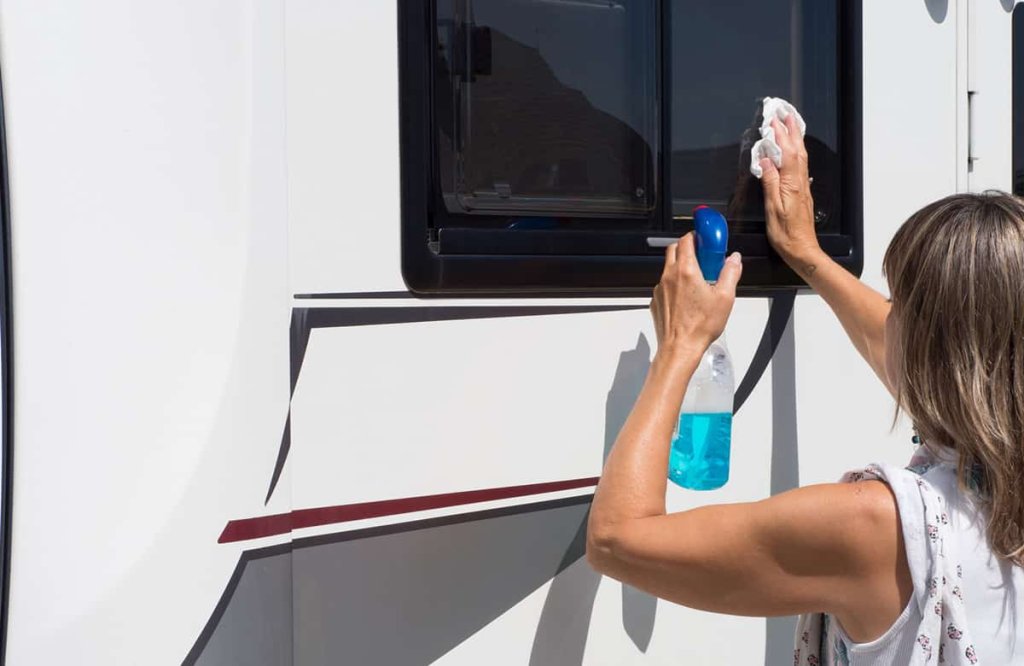
Just like RV roofing windows, RVs are also available with various materials such as tempered glass, fiberglass, vinyl, or aluminum. So, the materials get affected if they are washed with higher PSI and will get damaged.
Hence, they need to be washed with a soft pressure wash. As far as aluminum windows are concerned, a higher-pressure wash will work better for them.
4. RV Wheels
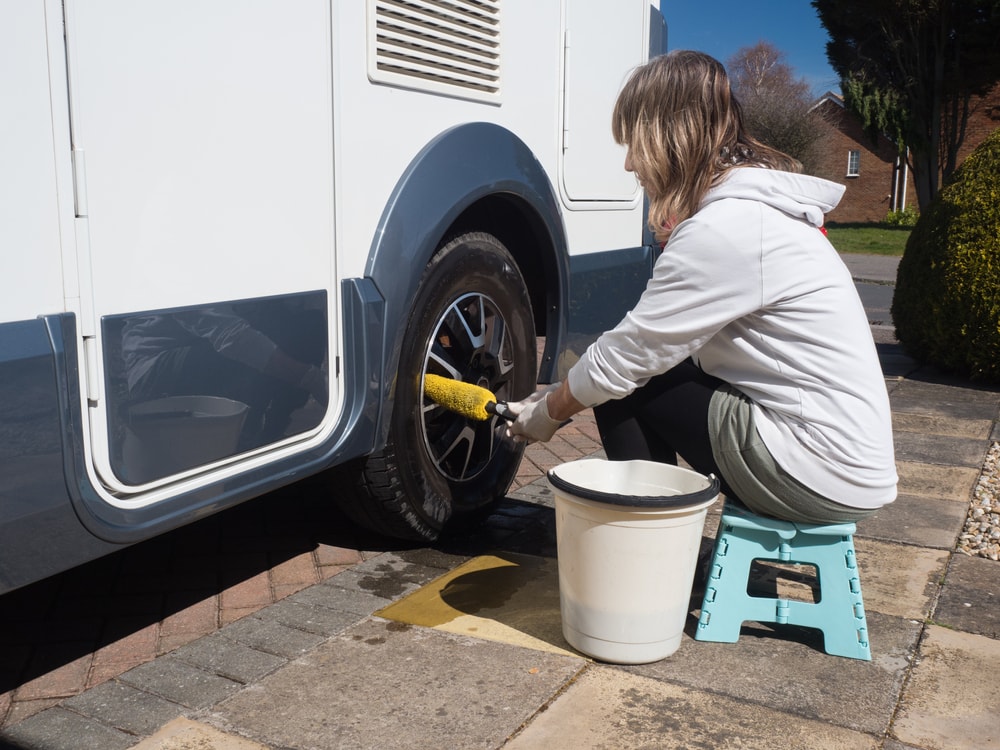
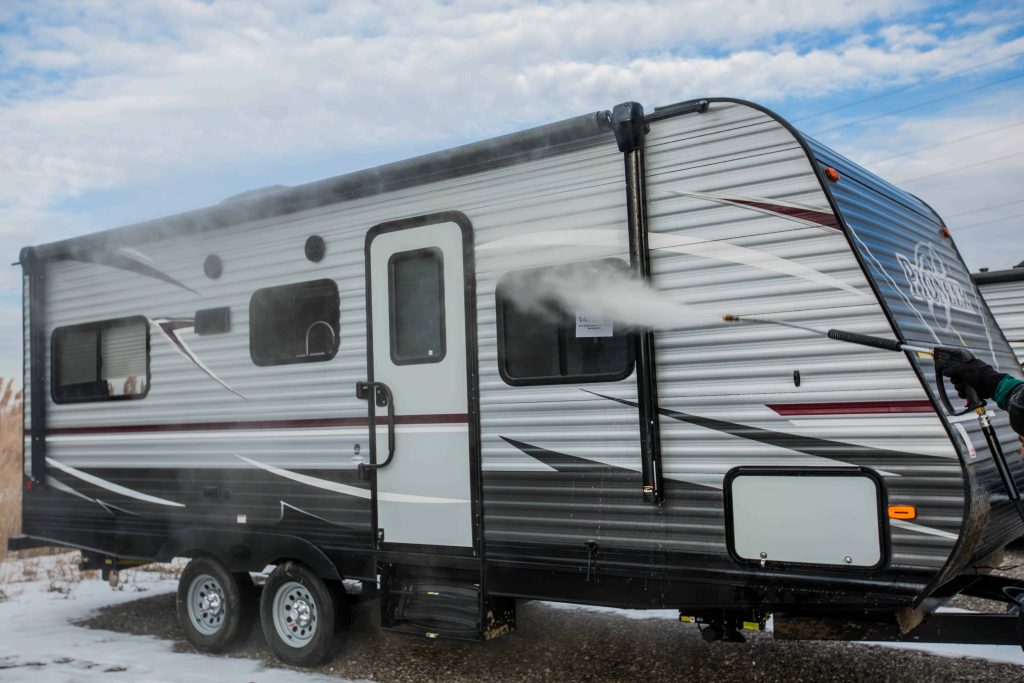
The RV tires are considered an important part of cleaning, and they require special cleaning procedures, too. RV tires are meant to be washed gently with lower PSI pressure. In case they are washed using higher PSI, they will fall apart due to damage like punctures or will lose their strength encountering high-pressure water exertion.
All these primary aspects of RV exterior parts cleaning and care are essential and extend the life of RVs. Apart from washing, RVs can last long if the RV owner properly compiles them by applying UV protectant or wax to avoid sun damage.
Conclusion
RVs are like second homes for their owners, and they want to take care of them in every possible way. However, many of the RV owners are not aware of some essential aspects regarding the same. For instance, the appropriate way for RV washing or cleaning, what kind of washing is better for the RV, what PSI is appropriate when using a pressure washer, etc., and many others.
In this article, we have explained the whole RV pressure-washing process with its required pressure limit for various types of materials used in RV structures. For instance, RV roofing, sides, windows, tires, etc.
The entire information described in this article will guide RV owners to perform the RV washing activity with much confidence and knowledge.
